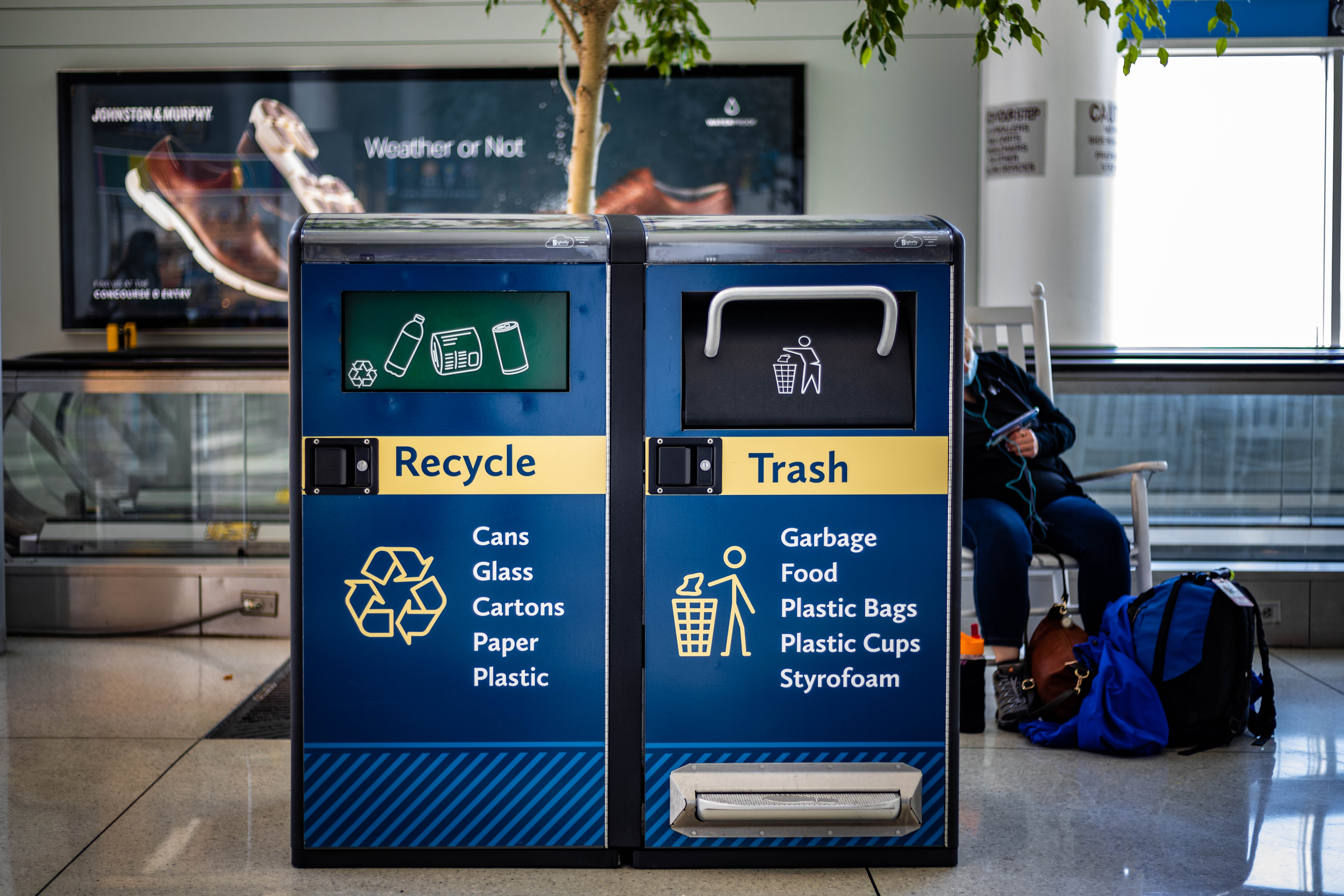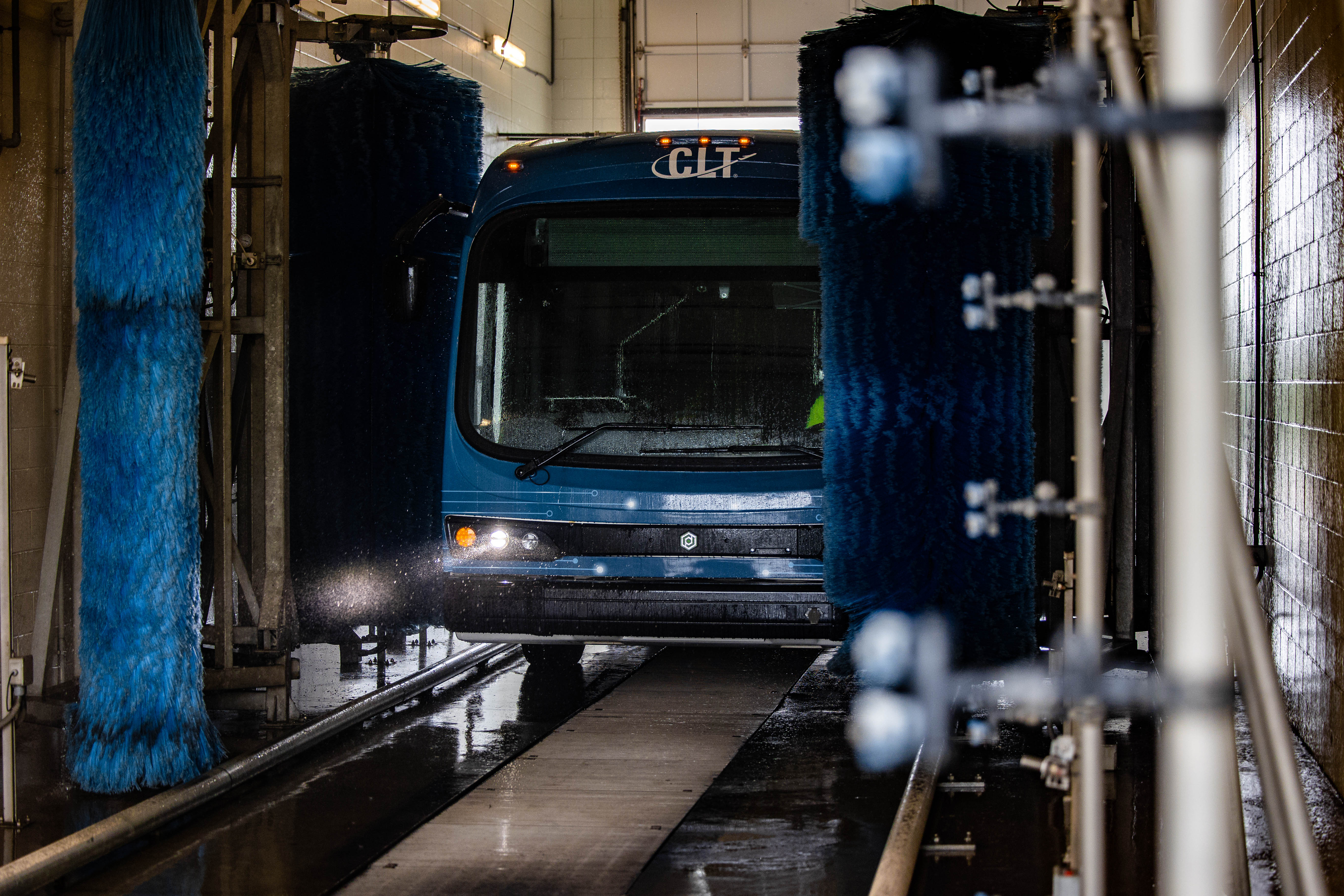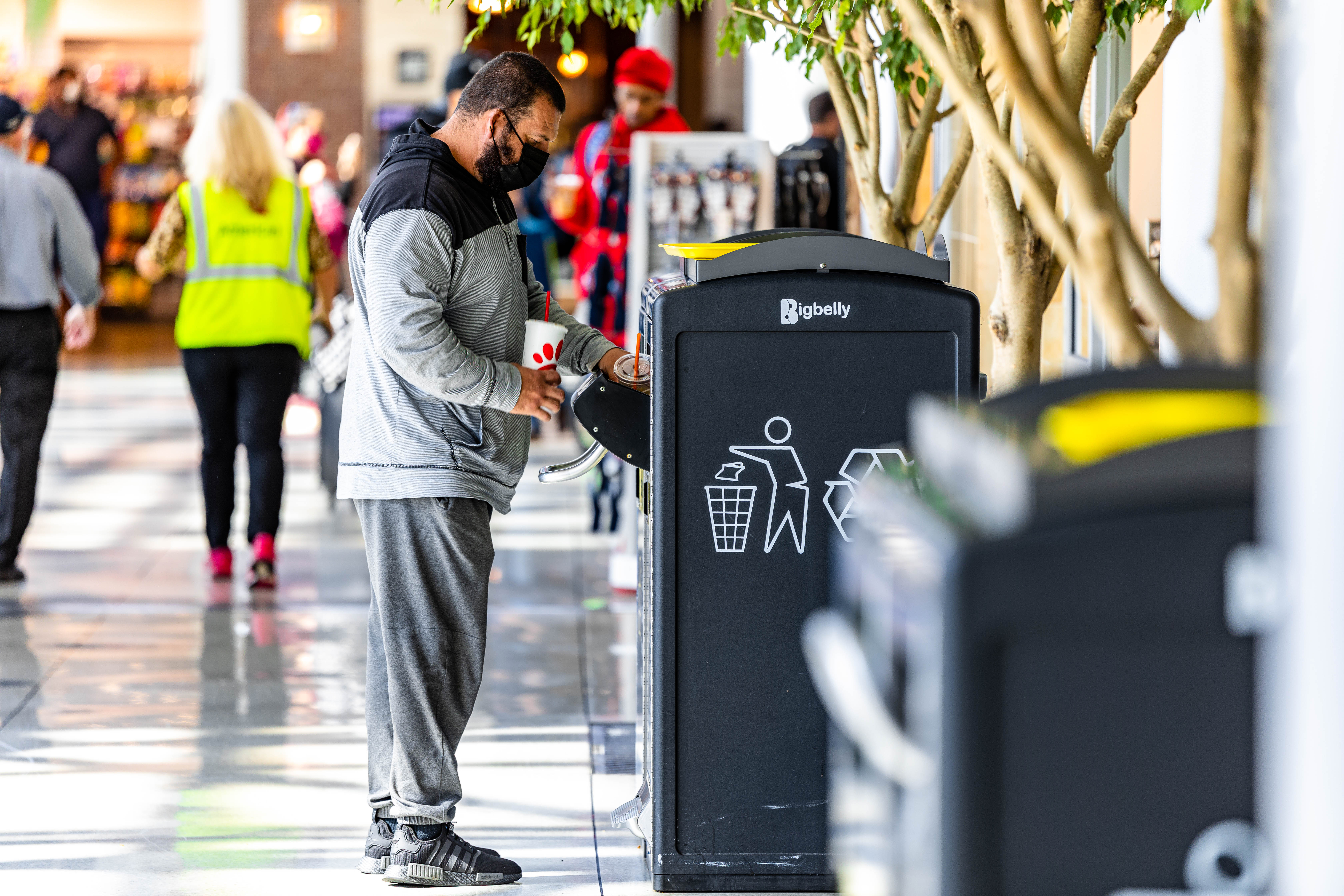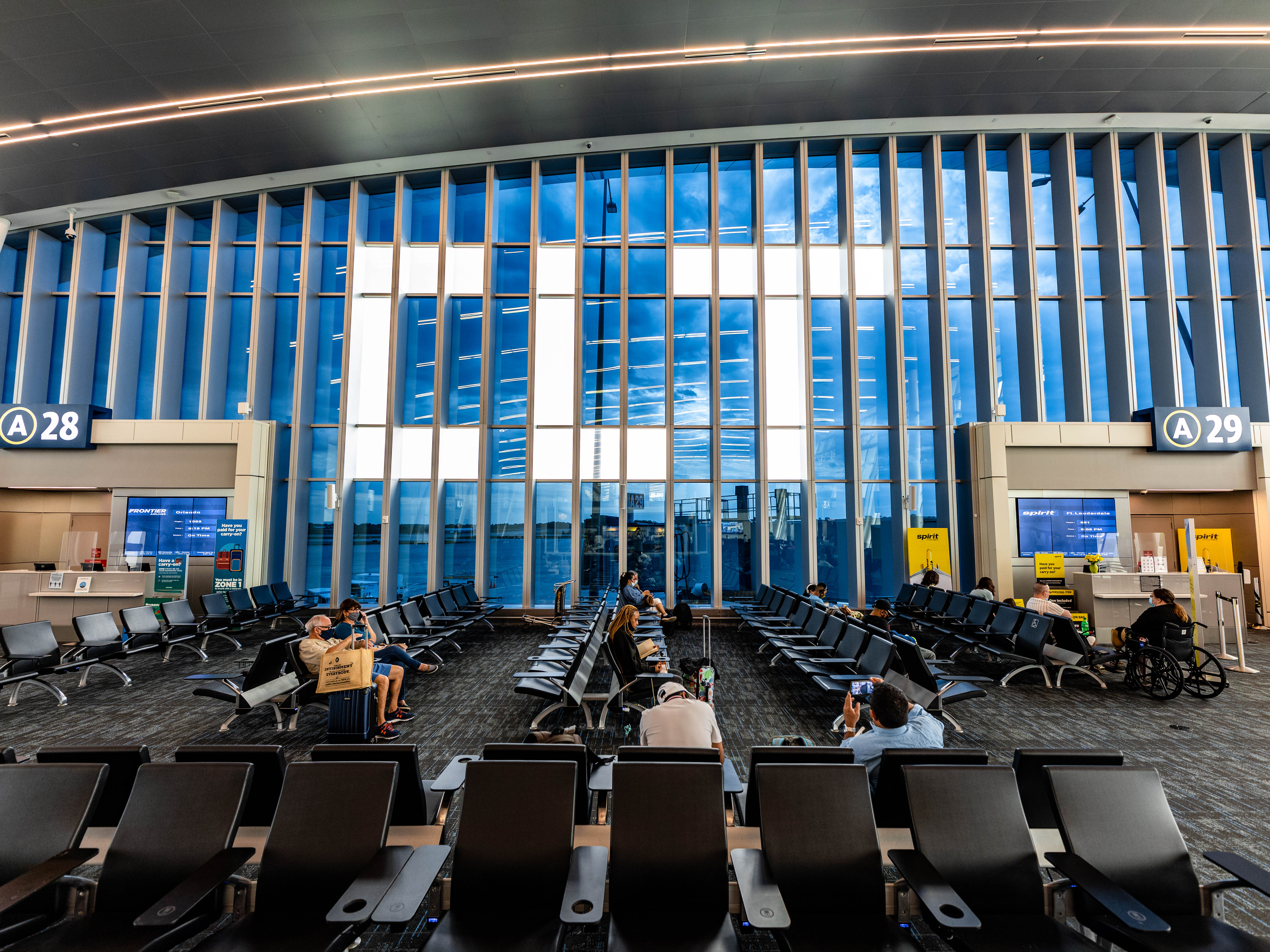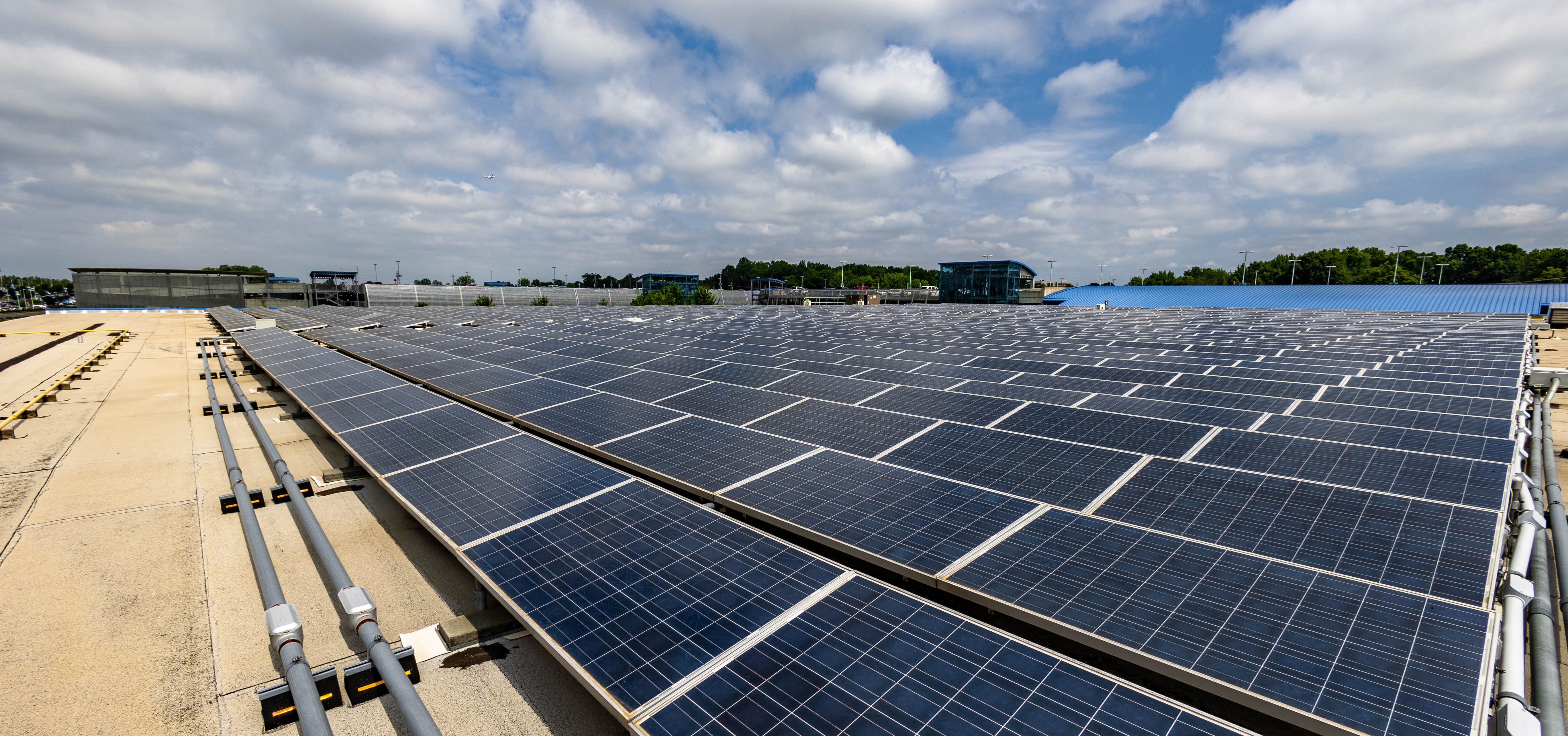
Sustainability is not just about protecting the environment at Charlotte Douglas International Airport; it involves finding innovative ways to use resources responsibly, provide a healthier community and ensure a brighter tomorrow for future generations.
“Our focus is lowering our carbon footprint and taking action to reduce our overall impact we have on the environment,” said Alicia Barone, the Aviation Department’s energy sustainability coordinator.
Just as other businesses and the public are looking for ways to be more environmentally aware and energy efficient at work and at home, the same thing is happening at CLT. The Airport is committed to sustainable practices in its daily operations and strives to be a leader in environmental stewardship. Among the ways that is happening: Electric buses are beginning to replace a fleet of diesel vehicles. Ten are in use so far. To meet a growing national demand to support electric cars, 17 vehicle charging stations are available for CLT customers. And, solar panels generate electricity to support Airport facilities.
“I think there is a lot more awareness about sustainability and the importance of having good strategy to help CLT become a more sustainable Airport,” Barone said.
Barone, who joined CLT in 2016, has collaborated with her coworkers to identify and promote sustainability initiatives that have proven successful for the Airport while striving to also eliminate practices that have potentially negative impacts. “I have always been intrigued by ecology and the environment,” Barone said. “Everything in nature is connected and inter-dependent. So, making even the smallest positive change can potentially improve the overall wellbeing of the people at the Airport as well as the surrounding community.”
Here’s highlights from 2021:
- 96 smart waste and recycling stations at CLT
- 80%+ of water used to wash CLT’s buses is reclaimed for reuse
- 17 electric vehicle charging stations
- 10 electric buses driven over 100,000 miles since 2020
- 1,000+ solar panels on the Aviation Department/CLT Center’s roof
- 142,529 pounds of used cooking oil – 95% converted into renewable diesel
- 36,325 tons of concrete crushed and reused in construction
- 3,063,840 pounds of recycled waste
The Aviation Department’s sustainability efforts are paying off. CLT received the Mecklenburg County Air Quality ACE Award, recognizing the commitment to ongoing air compliance excellence. Last year Concourse A Phase I expansion earned Green Globes® certification in recognition of sustainability efforts during design and the constructions itself.
We hope that this certification will be the first of many for the Airport,” Barone said.
As the Destination CLT, a $3.1 billion capital investment in capacity enhancement projects, portfolio continues to grow, CLT plans to pursue Green Globes® certification for future projects. CLT is always looking for opportunities in construction projects and its daily operations to reduce its carbon footprint and minimize its environmental impact.
The Aviation Department’s Comprehensive Sustainability Plan, which was adopted in 2020, is guiding how CLT expands its current sustainability practices over the next 20 years while also helping the City of Charlotte achieve the objectives outlined in the Strategic Energy Action Plan (SEAP). The Aviation Department operates the Airport for the City of Charlotte. The Comprehensive Sustainability Plan is centered around several focus areas, each supported by their environmental, economic, and/or social performance targets and goals. Under the plan, CLT aims to reduce waste generation, reduce potable water use, improve indoor/outdoor air quality, increase alternative fueling infrastructure and strive toward 100% zero carbon airport-owned buildings and vehicle fleet.
The Airport is moving in the right direction on its path becoming a leader in environmental stewardship and plans for a more sustainable future. “Many CLT employees were involved as stakeholders during the creation of the sustainability plan,” Barone said. “They understand how good sustainability practices can protect our natural resources and benefit the lives of everyone in the community.”
